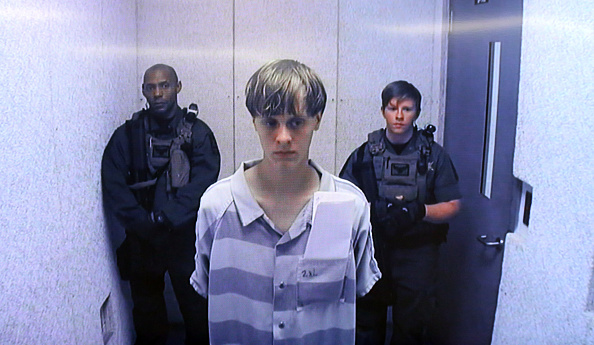After receiving the death penalty in federal court back in January, Dylann Roof—the self-identified white supremacist behind the Charleston church massacre—will plead guilty to state murder charges, the Washington Post reports.
Roof’s decision to plead guilty means the state’s case won’t go to court, sparing survivors of the attack and victims’ family members from having to provide a second round of grueling, emotional testimony. In exchange for the plea, state prosecutors handed Roof a life sentence instead of the death penalty, a move prosecutor Scarlett A. Wilson described as “an insurance policy to the federal conviction and sentence.”
Videos by VICE
“A guilty plea in state court means that if something very, very, very unlikely were to happen at the federal level, the state sentence would take effect and he would serve life in prison,” Wilson wrote in a letter to victims’ families.
Roof, now 22 years old, was convicted of all 33 charges brought against him in his federal trial—including 12 hate crimes—but it’s unclear whether or not the federal government will actually end up executing him. Federal executions are rare, due in part to the relatively few number of federal death penalty cases that have been tried compared to those at the state level. Since the national death penalty was reinstated in 1988, there have only been three federal executions over the course of nearly 30 years.
In 2015, Roof entered the Emanuel AME church in Charleston and opened fire on a Bible study group, killing nine black parishioners. He confessed to the attack, and refused counsel in his federal trial to prevent lawyers from claiming he was mentally unstable. He’s repeatedly insisted he feels no remorse for what he did, writing in his jailhouse journal that he has “not shed a tear for the innocent people I killed.”
“Sometimes sitting in my cell,” Roof wrote in jail, “I think about how nice it would be to watch a movie or eat some good food or drive my car somewhere, but then I remember how I felt when I did these things, and how I knew I had to do something. And then I realize it was worth it.”
Follow Drew Schwartz on Twitter.
More
From VICE
-

(Photo by Kevin Mazur/Getty Images for Live Nation) -

Photo: Petri Oeschger / Getty Images


